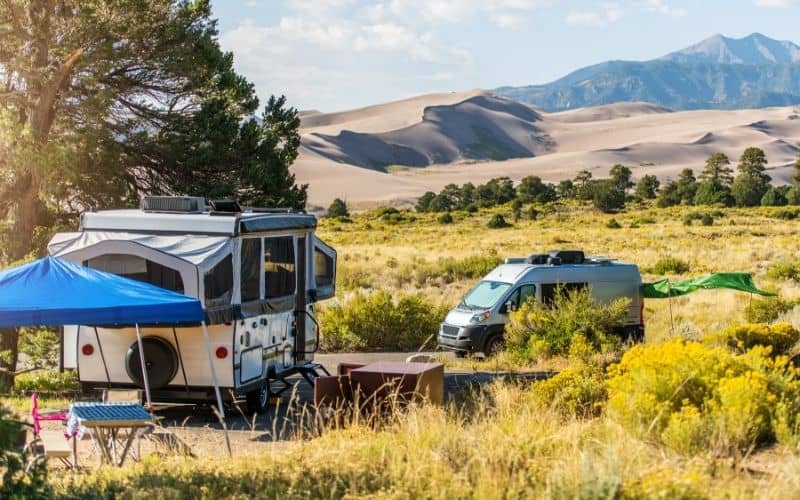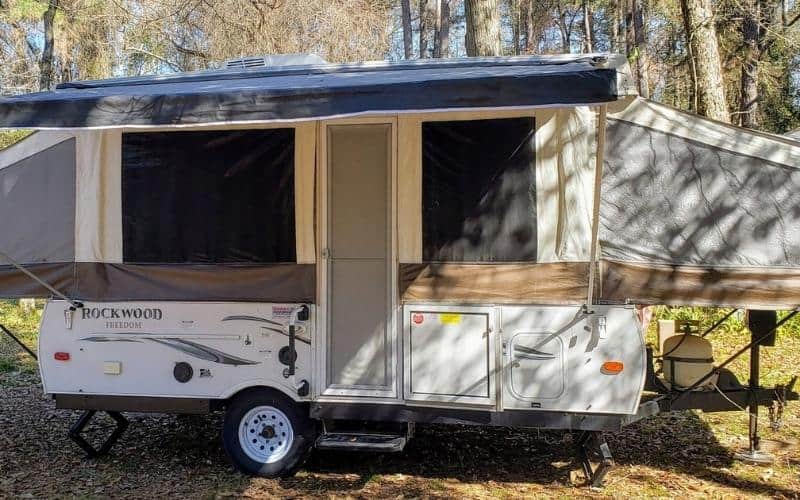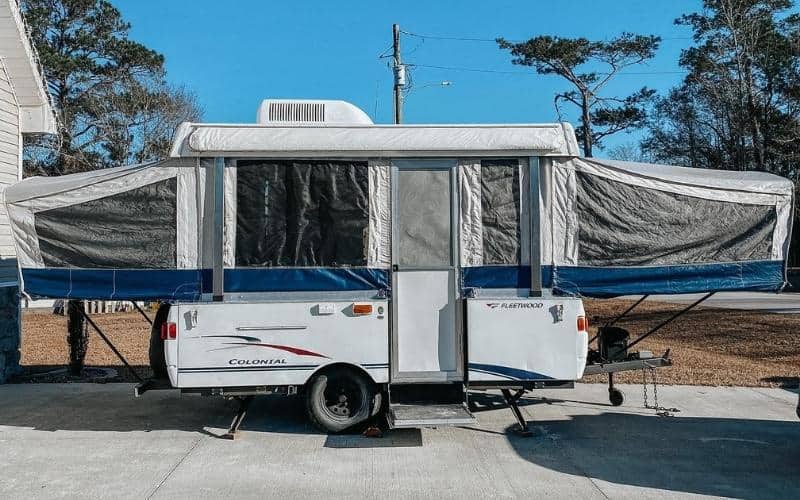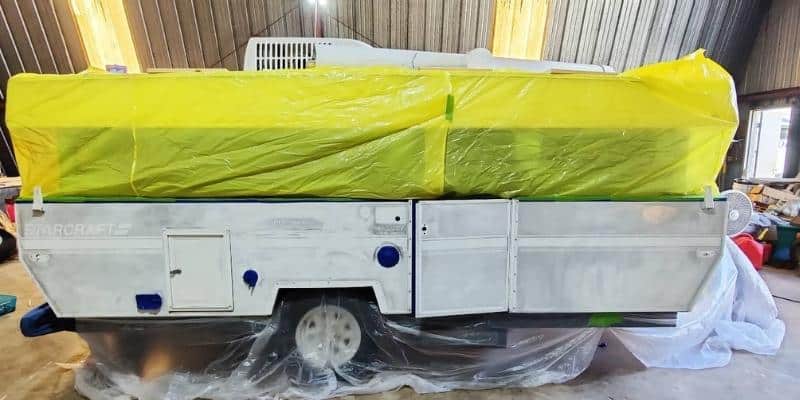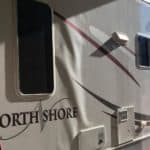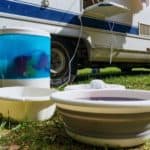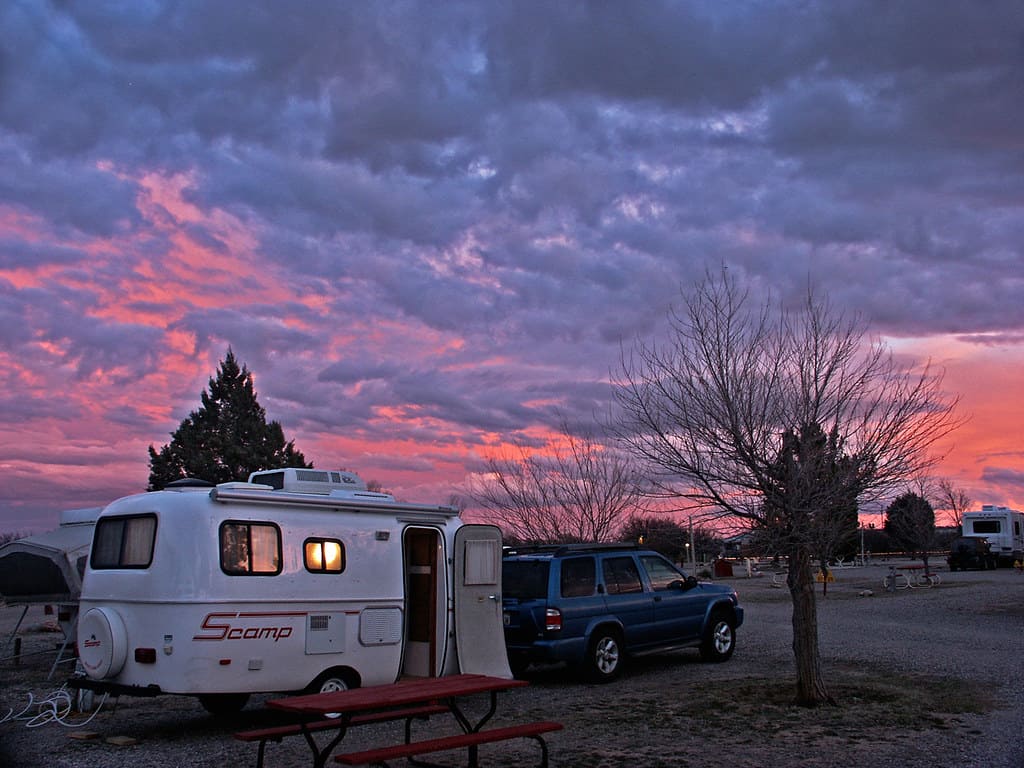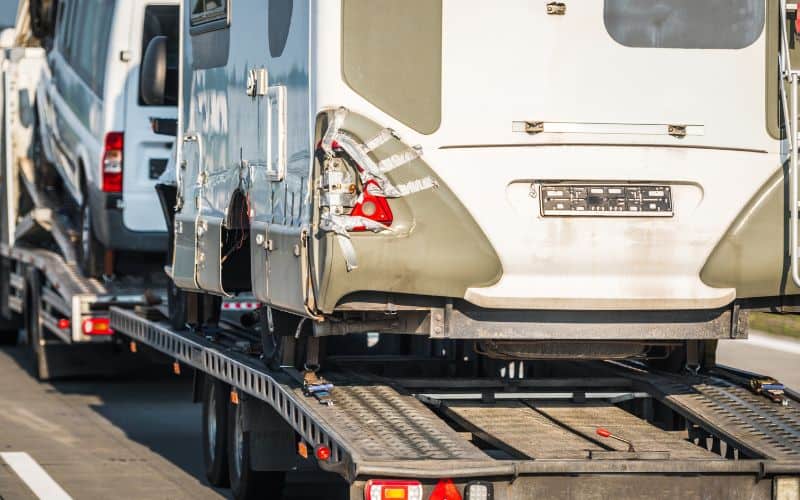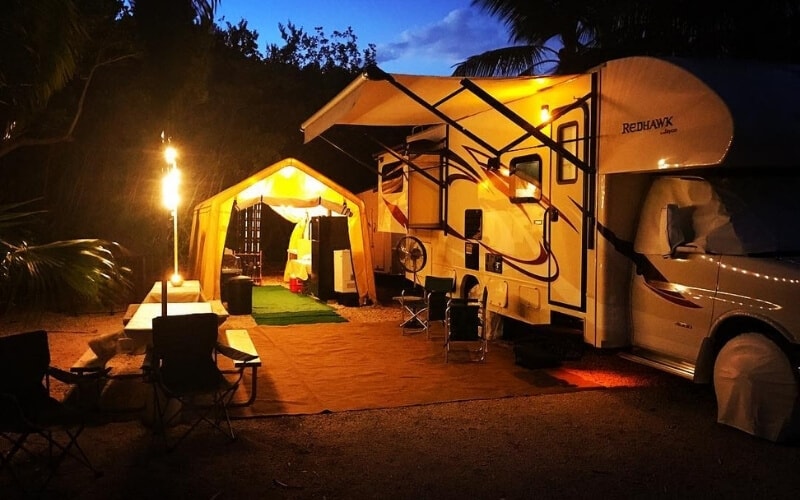Popup campers are relatively affordable, lightweight camper that is prized by SUV owners and people who need to sleep a full family, without having to invest in the kind of big pickup truck needed to pull a large travel trailer.
Since they are relatively cheap, they are a great way to make the most out of your camping budget.
If this sounds like you, then you might be wondering, do I need to insure my popup camper?
Legally, most, but not all states don’t require you to insure your popup camper. As it’s not technically a vehicle and doesn’t fall under the liability insurance requirements. However, most lending institutions require you to maintain some degree of insurance on a popup camper while it has a lien on it.
So, if you are going to be financing your new popup camper or taking a loan out on an older popup camper, you will likely be required by the lending institution to carry some level of insurance on it.
Though even if you own or outright buy your popup camper with cash, you still might want to consider insuring it to protect your investment.
Many automotive vehicle insurance policies offer minimal coverage for towed trailers.
Why Do I Need Popup Camper Insurance?
If your tow vehicle has comprehensive coverage, then it might also include some degree of insurance protection for anything you tow.
However, any damage to your trailer will still fall under the umbrella of your automotive insurance deductible.
You should also bear in mind that the coverage from your tow vehicle’s insurance ends the second you unhitch your popup camper from it.
If you drive to town and a storm blows a tree over, crushing your popup camper then you are out of luck.
How Much Does It Cost To Insure A Popup Camper?
The annual ballpark cost to insure a popup camper can vary from $75 to as much as $400 per year.
There are several factors that can adjust the annual premium payment.
While there are some that will be out of your control, there are a few that are out of your control, and a few that you might be able to influence to get the lowest premium possible.
Factors That Affect The Cost Of Popup Camper Insurance
The following are some of the factors that affect your cost, and possible ways that you can save money on your annual premium or make sure that you have the sufficient level of insurance to protect your investment.
Age
The newer the popup camper is the more coverage a lending institution will require. This is a level that they require and it might vary from one lender to the next.
Value
The higher the MSRP or assessed resale value is, the higher your popup camper’s insurance premium will be.
Most insurance companies will assess the premium cost based on what it would cost to completely replace the popup camper if it is totaled.
Choosing a popup camper with fewer luxury features will keep the value lower, which will lower the annual insurance premium cost.
Size
The total length of the popup camper might also affect the insurance premium cost.
Choosing a model that is shorter might save you on the premium insurance cost, but this is a minimal factor.
Level Of Protection
Just like vehicles, you can get comprehensive insurance for your popup camper that goes beyond the barebones coverage offered by a liability policy.
While comprehensive coverage can cost up to 25% more, it is probably a good option if you will be traveling a lot or you want to keep your popup camper unattended such as at the family lake lot, or at a seasonal rental campground.
How It Is Stored
There are some RV insurance policies that offer discounts for storing your popup camper indoors.
Though these discounts usually mean storing it at a licensed or some type of monitored facility.
If you claim to store your popup camper indoors, and you don’t, your policy coverage could be void if it is damaged while leaving it outside.
The Deductible Amount
Most insurance policies have some type of deductible limit. This is an amount of money that you have to pay out of pocket before the insurance coverage kicks in.
The lower your deductible amount is, the higher your premium will be and vice versa.
If you want to save a lot of money on your popup camper insurance, you should choose the highest deductible possible.
Just bear in mind that you could end up shouldering a lot of out-of-pocket costs if the camper is damaged in the future.
Are There Certain States That Require Pop Up Camper Insurance?
North Carolina requires that any and all RVs carry a minimal level of insurance.
This is typically liability coverage just like you would have to do for a motorized vehicle.
Most other states don’t require towed trailers to be insured, only motorhomes.
Can I Bundle My Popup Camper Insurance?
There are some US-based insurance companies like Geico, Nationwide, and Progressive, that do offer you the opportunity to bundle an “RV Insurance” policy with your home, auto or renter’s insurance.
This is another great way to save money on your popup camper’s insurance premium.
Are Popup Campers Covered By My Tow Vehicle’s Insurance?
Some, but not all automotive insurance policies will cover a portion of the cost of a trailer being towed.
This is more likely to be the case if your car, truck or SUV have comprehensive coverage.
Though this insurance coverage is only in effect when the popup camper is being towed.
It doesn’t cover damage that might occur at your campsite or while your camper is in storage.
Conclusion
Unless you live in the state of North Carolina, you don’t technically need to insure a pop-up camper that you own outright.
Though just about any reputable lender will require you to carry some type of insurance on a popup camper until the entirety of the debt is repaid.
This is typically a comprehensive policy that might cost you as much as $400 each year.
Even if you do own the popup camper outright and there aren’t any state requirements, you might still want to take out an insurance policy on your popup camper to protect your investment.
While you might have coverage under your automotive insurance policy while you are towing, this coverage does not carry over the minute the tongue separates from the hitch.

